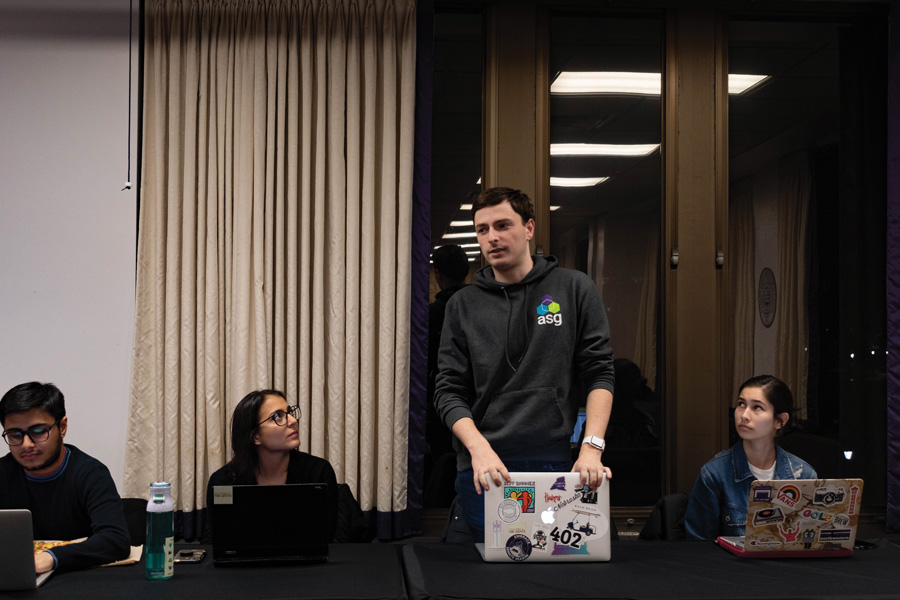ASG Senate proposes two amendments, discusses mandating at least one community dialogue
Alison Albelda/Daily Senior Staffer
Associated Student Government’s chief of staff Henry Molnar speaks during ASG Senate’s meeting. An amendment introduced during the session would officially make him a part of the executive office.
November 21, 2019
Associated Student Government Senate discussed initiating a code review during its Wednesday meeting that would make it mandatory for senators to attend at least one community dialogue meeting a year.
Community dialogues are regular conversations between students and administrators that center primarily around four topics — academics, campus life, student well-being and activities. It’s already mandatory for ASG executive board members to attend at least one dialogue, but parliamentarian Elizabeth Sperti said she thinks it’s beneficial to expand the policy to the rest of ASG.
“It gives them a good chance to get experience talking directly to admin and advocating for students,” the Weinberg sophomore said.
Sperti said she will lead a town hall about the code review but has not finalized the time or location. Still, she encouraged senators to attend it.
ASG also introduced two constitutional amendments to its constitution that are meant to resolve logistical problems surrounding titles of members and the role of the chief of staff.
One of them would change the official titles of executive board members that start with “vice president.” Sperti said during the meeting that changing the designations would make it easier to differentiate between the executive vice president at the leadership of ASG and other members of the executive board.
Right now, the proposed shift would change “vice president” to “secretary,” Sperti said, while adding that she was still open to suggestions.
Co-vice president of community relations Jillian Gilburne said she supported the amendment. Although her title would change, the Communication senior said she thought it would be easier to explain her actual role on ASG to people unfamiliar with the organization and assert her authority.
“A lot of times when I say ‘VP,’ people think that there’s someone above me, and that I don’t actually have full authority to make a decision or have a meeting,” Gilburne said. “I’m like, ‘Cool, nope, I’m in charge,’ and then I have to explain the whole hierarchy to them. And that’s kind of awkward and frustrating.”
The other amendment would officially add the chief of staff to the executive office. On the ASG website, chief of staff Henry Molnar is already listed under the executive office. Sperti said the chief of staff has often been involved in major decisions with the group, so it “didn’t make sense” for them to not be a part of it.
Vice president of health and wellness Revika Singh said she also viewed the amendment as a reflection of how ASG functions.
“The roles in ASG definitely evolve a lot over time,” the Weinberg sophomore said, “and even just in one year, where sometimes you have to change the code to meet what that role has now become.”
Senators were also encouraged to attend the group’s next meeting during reading week because decisions about funding would be finalized, and emergency legislation about emergency funding would be passed.
Email: [email protected]
Twitter: @neyachalam


